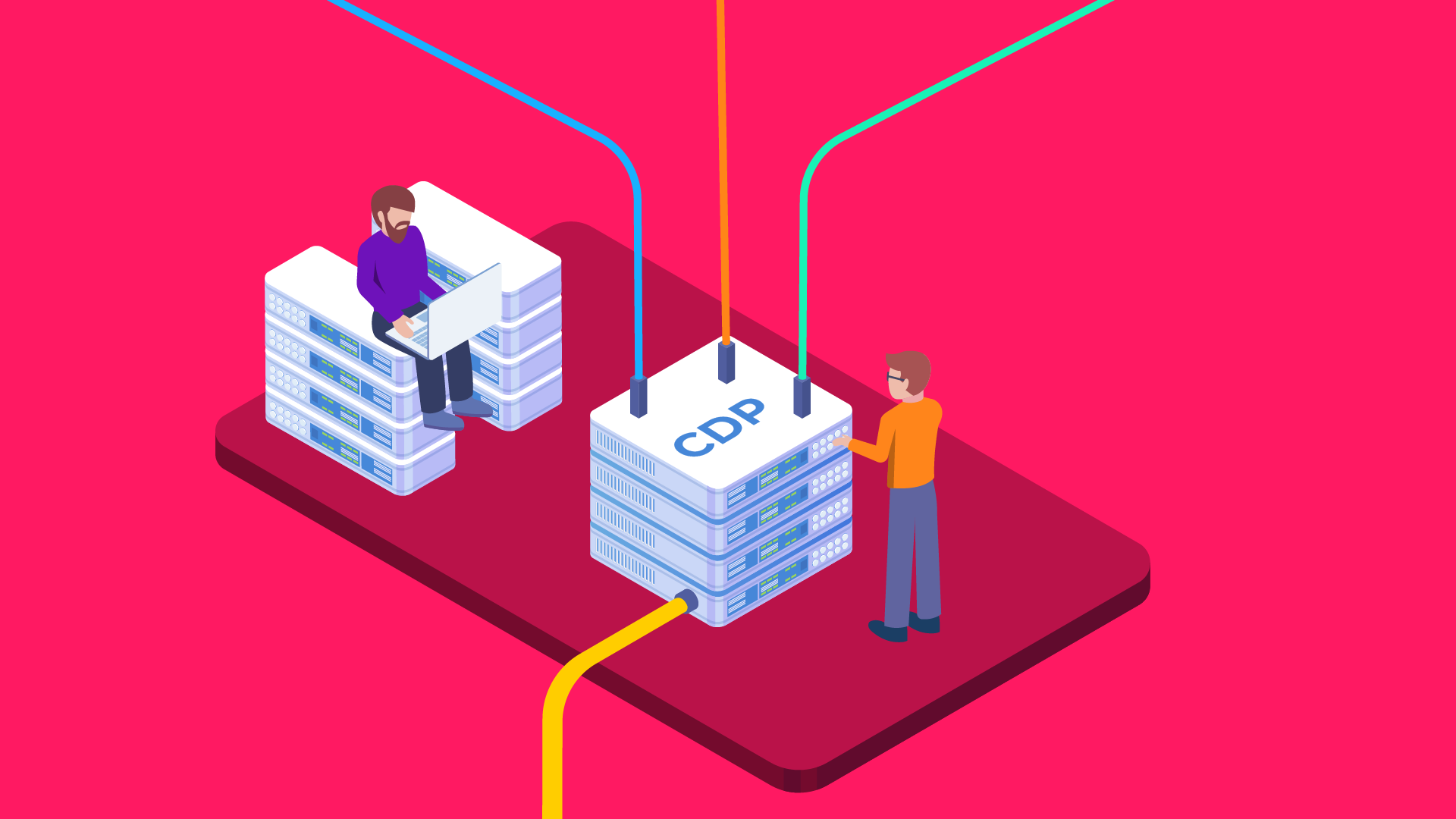Author: Steffen Meyer, Mobile Marketing Content Specialist
Data is everywhere. In fact, there is so much data that the real problem isn’t gathering but managing it, making sense of it, and actually putting it into good use.
One of the systems that helps you with this, is a Customer Data Platform, short: CDP. A CDP collects data from different sources, unifies it, and grants real-time insights.
This means for example, combining data you got about your customers (like email and mobile number) with data you received before they were your customers (like anonymous cookies). This way, you can map the customer’s journey in a very granular way.
Unified data, available for all departments
For a better understanding of what a CDP does, visualize all the different data streams of your company as liquid streams of differently colored fluids, and each of your teams puts one of these fluids into special engines to power their departments: So marketers put the blue stuff in their blue machine, sales people yellow liquid in a yellow machine and the developers green in green.
Now a CDP is a machine that can process all the different colored liquids and produce a new golden stream that every department can use.
To be fair, this new stream comes in handy mainly for marketers, since with all the information, they get a clearer picture of their customers. No surprise here, since the C in CDP stands for Customer.
So what are the advantages of using a CDP?
- Personalization: With all the combined information in a CDP, you can highly personalize the messages you are sending out to prospects and customers, reaching new levels in user segmentation.
- Automation: The artificial intelligence of a CDP can work well together with your marketing automation system, enabling you to run real-time campaign activation based on a user’s digital activity.
- Omnichannel Marketing: Advertising your app, shouldn’t exclusively happen on one channel but on a variety of them. Though the data you receive will be diverse and seemingly incompatible. A CDP can help to unify this data and optimize your omnichannel strategy.
Data Privacy Management: Since a CDP is designed to provide a single record of truth regarding a customer, you can centrally manage privacy settings. This makes it easier to comply with regulations like the GDPR.
Should you get a CDP?
First mentioned in a blogpost in 2013, CDP systems have grown into an established market with various providers and an own CDP Institute. Still, many companies are wondering if they should follow this trend. If you are unsure about it, get in contact with us and follow this blog: Next time, we will delve into the differences of CDP, CRM and Data Warehousing which will make things clearer.
💡 Knowledge sharing is at the core of what we do. Get our Marketing Master Map, sign up for our newsletter and become part of our community on LinkedIn to learn how to make apps succeed in the competitive mobile landscape.
Helpful Links:




